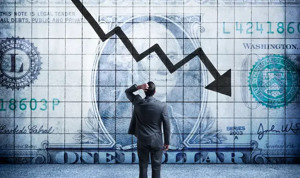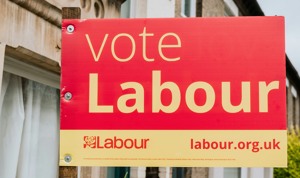Tavex uses cookies to ensure website functionality and improve your user experience. Collecting data from cookies helps us provide the best experience for you, keeps your account secure and allows us to personalise advert content. You can find out more in our cookie policy.
Please select what cookies you allow us to use
Cookies are small files of letters and digits downloaded and saved on your computer or another device (for instance, a mobile phone, a tablet) and saved in your browser while you visit a website. They can be used to track the pages you visit on the website, save the information you enter or remember your preferences such as language settings as long as you’re browsing the website.
| Cookie name | Cookie description | Cookie duration |
|---|---|---|
| tavex_cookie_consent | Stores cookie consent options selected | 60 weeks |
| tavex_customer | Tavex customer ID | 30 days |
| wp-wpml_current_language | Stores selected language | 1 day |
| AWSALB | AWS ALB sticky session cookie | 6 days |
| AWSALBCORS | AWS ALB sticky session cookie | 6 days |
| NO_CACHE | Used to disable page caching | 1 day |
| PHPSESSID | Identifier for PHP session | Session |
| latest_news | Helps to keep notifications relevant by storing the latest news shown | 29 days |
| latest_news_flash | Helps to keep notifications relevant by storing the latest news shown | 29 days |
| tavex_recently_viewed_products | List of recently viewed products | 1 day |
| tavex_compare_amount | Number of items in product comparison view | 1 day |
| Cookie name | Cookie description | Cookie duration |
|---|---|---|
| chart-widget-tab-*-*-* | Remembers last chart options (i.e currency, time period, etc) | 29 days |
| archive_layout | Stores selected product layout on category pages | 1 day |
| Cookie name | Cookie description | Cookie duration |
|---|---|---|
| cartstack.com-* | Used for tracking abandoned shopping carts | 1 year |
| _omappvp | Used by OptinMonster for determining new vs. returning visitors. Expires in 11 years | 11 years |
| _omappvs | Used by OptinMonster for determining when a new visitor becomes a returning visitor | Session |
| om* | Used by OptinMonster to track interactions with campaigns | Persistent |
| Cookie name | Cookie description | Cookie duration |
|---|---|---|
| _ga | Used to distinguish users | 2 years |
| _gid | Used to distinguish users | 24 hours |
| _ga_* | Used to persist session state | 2 years |
| _gac_* | Contains campaign related information | 90 days |
| _gat_gtag_* | Used to throttle request rate | 1 minute |
| _fbc | Facebook advertisement cookie | 2 years |
| _fbp | Facebook cookie for distinguishing unique users | 2 years |
The World's $91 Trillion Debt Burden: Politicians Turn a Blind Eye

Governments worldwide have collectively increased their national debt to an astonishing $91 trillion. This amount is nearly equivalent to the global gross domestic product, which is the total value of all goods and services consumed on Earth in a single year, according to CNN.
The debt burden has become so immense that it poses a serious threat to the well-being and standard of living across the entire Western world.

Many major countries have crucial elections this year, including both parliamentary and presidential races. Despite this, the issue of national debt increasing in central banks is being ignored in the election campaigns. Addressing it would require discussing tax increases and spending cuts. Some campaign promises might even exacerbate the problem or trigger another financial crisis.
In early July, the International Monetary Fund reiterated its warning that “immediate action is needed to address the US’s chronic budget deficit.” Investors have been anxious about this issue for years, expressing concerns about the long-term trajectory of US finances.
“Continuing deficits and the growth of the debt burden have now made it more of a medium-term problem,”
said Roger Hallam, head of interest rate research at Vanguard, one of the world’s largest asset managers
Investors are Getting More Anxious

The amount of debt burdens are increasing, and investors are becoming increasingly anxious. In France, political turmoil has intensified these concerns, leading to higher yields (interest rates) on government bonds. Even though there is no immediate financial crisis, investors are demanding higher interest rates from many governments and local governments as budget deficits reach new heights
Higher interest costs mean that governments have less money available for essential public services
Additionally, there are fewer resources to address crises such as the Covid-19 pandemic, whether they are financial, economic, pandemics, or wars.
As interest rates rise, private sector investment decreases, making it increasingly difficult for governments to increase their debt to counteract a recession.
Addressing America’s debt problem (borrowed money) requires either raising taxes or reducing benefits, such as Social Security and Medicare, said Karen Dynan, former chief economist at the U.S. Treasury Department. “Many politicians are not willing to talk about the difficult choices that have to be made. These are very serious decisions and can significantly affect people’s lives.”
Kenneth Rogoff, chief economist at Harvard University, agrees that the US and other countries must begin making tough decisions. “Debt is no longer free,” he told CNN.
“Debt as a Free Lunch”

“In the 2010s, many academics, politicians and central bankers began to believe that interest rates would remain at zero. The opinion began to spread that debt is a free lunch,”
explained Rogoff
“This attitude was stupid, because you can actually think of government debt as a real estate loan with a floating interest rate. If interest rates rise sharply, so will your interest payments. And this is exactly what has happened around the world.”
In the US, the federal government will spend $892 billion on interest payments this fiscal year, surpassing planned defense spending and nearing the Medicare budget. Medicare provides health insurance for people over 65 and those with disabilities.
Interest payments are projected to exceed $1 trillion next year, while the national debt has surged to nearly $35 trillion, comparable to the size of the entire U.S. economy, according to the independent Congressional Budget Office (CBO).
According to the CBO, the level of the US national debt will rise to 166 percent of GDP by 2054 (debt to GDP ratio), which will begin to severely depress economic growth.
But how much debt is too much? “Economists don’t think there is a specific level at which bad things start to happen in markets. The majority, however, realize that a level of 150 or 180 percent brings very serious consequences for both the household and society as a whole,” said Dynan.
Politicians Hide their Heads in the Sand

Despite concerns about the debt burden, presidential candidates Joe Biden and Donald Trump have not committed to addressing the issue of US finances. In the first televised debate in June, each blamed the other for exacerbating the debt situation. Biden attributed the problem to Trump’s tax cuts, while Trump pointed to Biden’s increased spending as the cause.
British politicians have also ignored the issue ahead of the elections
The Institute for Fiscal Studies (IFS) criticized the country’s two main parties for completely avoiding discussions about the poor state of public finances.
“It doesn’t matter who’s in power, they will soon be faced with tough choices,” IFS director Paul Johnson said last week. “They have the option to raise taxes more than planned, reduce spending, or be satisfied with continuing to live in debt.”
Countries are grappling with the debt problem. In Germany, heated debates over the debt limit have threatened the survival of the government coalition. An agreement was finally reached in early July, largely due to budgetary maneuvers that satisfied all parties involved.
Kenya has recently been attempting to address its $80 billion debt burden
However, the cuts sparked nationwide protests, resulting in 39 deaths. Consequently, President William Ruto was forced to abandon the implementation of new laws.
The Bond Market Scares Governments

If the problem is not addressed, governments will face a new challenge as financial markets may start imposing their own discipline. A recent example is the United Kingdom, where former Prime Minister Liz Truss triggered a free fall of the pound and a pension fund crisis in 2022 with her plans. She attempted to implement large tax cuts and intended to finance the resulting deficit with loans.
The threat has not disappeared. Take France, for example. The country faced the threat of a financial crisis overnight after President Emmanuel Macron called for snap elections.
Investors feared that voters would support populists who want to cut taxes while increasing spending. Such actions would accelerate the growth of the national debt and budget deficit.
Although the worst-case scenario seems unlikely for France now, interest rates on sovereign bonds remain high. In June, interest rates reached their highest level since last November.
Harvard University’s Dynan said that financial markets can quickly become impatient due to “political physic” and that the ability of governments to pay their debts will begin to be questioned.
“We often cannot imagine how wrong things can go. If there’s a big event that causes the markets to panic about US debt, that’s something that wasn’t on our radar before,”
Dynan explained

















